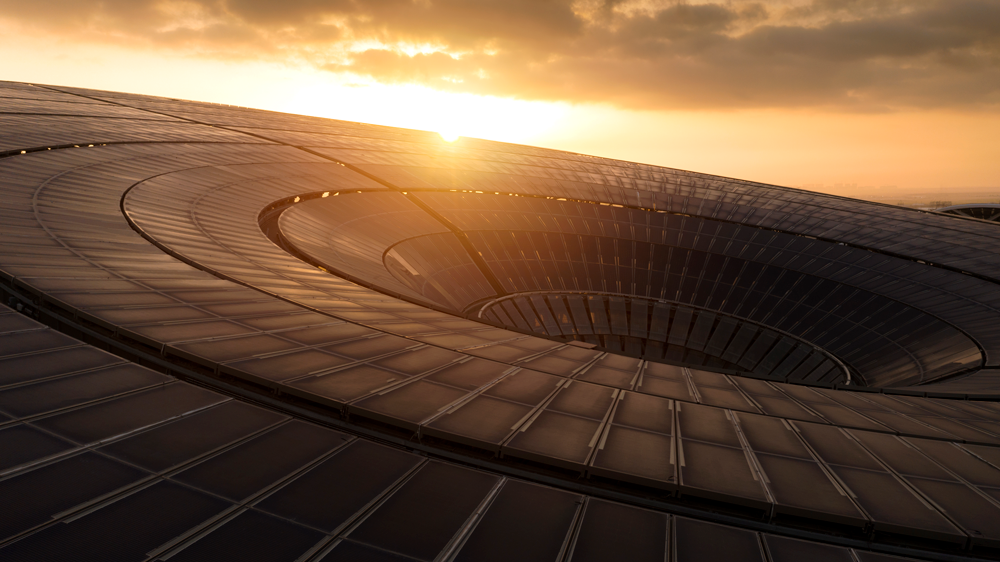

In line with rising population numbers and an increasing demand for better lifestyles, urbanisation of cities is a priority for governments across the world.
However, urban development comes with its own set of challenges and can be detrimental if not implemented in a sustainable manner.
Combining best practices with technology is one way to create grassroot-level change when it comes to urbanisation. From the way goods and people are transported, to the way waste is managed, smart solutions being spotlighted at Expo 2020 Dubai could contribute to a better tomorrow.
1. Zero-carbon deliveries
Official Logistics Partner UPS is expanding its Expo 2020 fleet with electrically assisted cycles (eCycles). The US package-delivery firm will deploy its Fernhay eQuad, a four-wheeled e-assist quadricycle, and three-wheeled Rytle eBikes across the site to serve the logistics needs of participating countries and visitors.
Trained riders will operate between the five UPS customer counters, country pavilions and an onsite warehouse to deliver packages, documents and goods for replenishment.

The eQuad has been built in partnership with Fernhay, a UK-based manufacturing and design company focused on creating zero-emission products for logistics deliveries. Image source: UPS
2. Sustainable and refreshing
US snack giant PepsiCo is introducing eco-conscious packaging with its drinking water brand Aquafina. The Official Beverage & Snack Partner will provide fully and infinitely recyclable aluminium cans and glass bottles during the event. The bottles will be co-branded with Expo 2020 and sold across the site.
PepsiCo will also work closely with Dulsco – expo's Official Waste Management Partner – to ensure waste is collected and recycled, supporting expo’s target of diverting a minimum of 85 per cent of waste away from landfill.

PepsiCo began transitioning from plastic bottles of Aquafina to alumnium cans in 2019 to reduce its plastic use. Image source: PepsiCo
3. Reimagining food delivery
Kuwaiti food delivery aggregator Talabat will run a sustainable cloud kitchen at the expo site, housing almost 30 brands and 15 cuisines. The two-storeyed 'Talabat Kitchen' will be equipped with 10 autonomous delivery vehicles, and a robotic ice-cream confectioner and barista.
The Official Food Delivery Provider for Expo will cater to both dine-in visitors at its food hall, as well as customers across the site via dedicated e-scooters.

Diners will be able to use dedicated screens or the app to place their order, with meals delivered on a dedicated conveyer belt. Cashiers will also be on hand to place orders. Image source: Expo 2020 Dubai
4. From trash to treasure
Expo's Official Waste Management Partner Dulsco will work with local companies to find hidden value in things otherwise directed to landfills.
The Dubai-based human and environmental solutions provider will support expo's mission to reduce, reuse, recycle and repurpose. Its purpose-built Waste2Resource plant in Dubai South will harness technology to transform used materials into everyday items and official expo memorabilia.
For example, paper and cardboard will be recycled to produce items such as cup holders, seed pots and boutique gift boxes, while glass and plastic can be upcycled to create sustainable, branded mementos.

With Dulsco's support, the circular economy is enabled, aligning with Expo 2020's key subtheme of sustainability. Image source: Dulsco on YouTube
5. Cities of tomorrow
Underpinned by its role as the Official Infrastructure Digitalisation Partner, German multinational firm Siemens is providing a number of smart solutions to improve the management and legacy of the expo site.
Forming the core is the cloud-based internet of things (IoT) system MindSphere, which will collect, monitor, correlate and analyse data from the site, and visualise it to allow real-time monitoring and control of elements such as air conditioning, lighting, alarms and water management.
MindSphere will power Navigator, to specifically monitor energy efficiency and emissions from 130+ buildings.
The Siveillance Video Management System (SiVMS) is a video management software providing a centralised surveillance interface. It will connect more than 15,000 cameras and 3,500 access control readers, and other safety and security information.
Nearly 200,000+ data points will be integrated into Siemens' Desigo CC Building Management System, a dedicated platform for buildings and structures. And the SiPass Integrated Access Control will connect more than 5,000 doors across the site, to manage access to critical and non-critical areas.
And finally, Siemens Energy, Expo 2020 and Dubai Electricity & Water Authority (Dewa) will build the Middle East and North Africa's first green hydrogen facility at the Mohammed bin Rashid al-Maktoum Solar Park.
The facility will use solar-generated power to produce green hydrogen using a technology called PEM electrolysis. At night, the green hydrogen will be converted into electricity to power the city with sustainable energy.

Siemens’ digital solutions will improve energy efficiency, safety, security and comfort for millions of visitors to the Expo 2020 site. Image source: Siemens Middle East
Related reads:
You might also like...

Iran-US talks see earnest engagement
27 February 2026

Kuwait receives bids for $400m Subiya utilities plant works
27 February 2026

A partner’s perspective on working with Sharakat
27 February 2026

Egypt’s Obelisk equity move merits attention
27 February 2026
A MEED Subscription...
Subscribe or upgrade your current MEED.com package to support your strategic planning with the MENA region’s best source of business information. Proceed to our online shop below to find out more about the features in each package.
Take advantage of our introductory offers below for new subscribers and purchase your access today! If you are an existing client, please reach out to your account manager.







